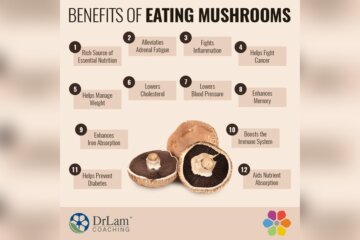Are Individual Supplements Better Than Multivitamins? Individual supplements can be better than multivitamins for specific nutrient needs. Multivitamins offer a broad spectrum of nutrients in one pill.
Choosing between individual supplements and multivitamins depends on your health requirements. Individual supplements target specific deficiencies, allowing for precise nutrient intake. This can be beneficial for addressing particular health concerns. Multivitamins, on the other hand, provide a convenient way to cover a wide range of vitamins and minerals.
They are ideal for those looking to maintain overall health without focusing on specific deficiencies. Both options have their benefits and drawbacks. It’s essential to consider your dietary habits, lifestyle, and specific health needs when making a decision. Consulting with a healthcare provider can help tailor the best approach for your nutritional goals.
Introduction To Dietary Supplements
Dietary supplements are products designed to add nutrients to your diet. They include vitamins, minerals, herbs, amino acids, and enzymes. Many people use supplements to fill nutritional gaps in their diet, and the growing interest in health has made these products popular.
Understanding dietary supplements helps you make informed choices. Knowing the differences between multivitamins and individual supplements is crucial. This blog post will guide you through these key aspects.
The Role Of Supplements In the Modern Diet
Modern diets often lack essential nutrients. Busy lifestyles and processed foods contribute to this deficiency. Supplements help bridge this nutritional gap, ensuring your body gets the nutrients it needs.
Supplements come in various forms, like pills, powders, and liquids. Each type has its unique benefits. Choosing the right form depends on your needs and preferences.
A balanced diet is the best way to get nutrients. However, supplements can provide additional support. They are particularly useful for people with dietary restrictions or specific health conditions.
Multivitamins Vs. Individual Supplements
Multivitamins contain a combination of vitamins and minerals designed to provide a broad spectrum of nutrients. They are convenient, easy to use, and suitable for general health maintenance.
Individual supplements focus on specific nutrients. They allow you to target particular deficiencies. For example, taking Vitamin D supplements if you’re deficient in Vitamin D. Individual supplements offer more control over your nutrient intake.
Here’s a comparison of multivitamins and individual supplements:
| Criteria | Multivitamins | Individual Supplements |
| Convenience | High | Varies |
| Targeted Nutrition | Low | High |
| Cost | Often lower | Can be higher |
| Customization | Limited | Flexible |
Multivitamins are best for overall health support, while individual supplements are ideal for addressing specific deficiencies. Choose based on your health goals and lifestyle needs.
The Composition Of Multivitamins
Multivitamins are popular supplements that combine many vitamins and minerals in one pill. They aim to cover a wide range of nutrient needs. Understanding their composition helps you choose the right product for your health.
Common Ingredients In Multivitamins
Multivitamins often contain a mix of vitamins and minerals that support various body functions. Here are some common ingredients:
- Vitamin A: Supports vision and immune health.
- Vitamin C: Boosts the immune system and skin health.
- Vitamin D: Promotes bone health and calcium absorption.
- Vitamin E: Acts as an antioxidant and supports skin health.
- Vitamin K: Helps in blood clotting and bone health.
- B Vitamins: Aid in energy production and red blood cell formation.
- Calcium: Essential for strong bones and teeth.
- Magnesium: Supports muscle and nerve function.
- Iron: Important for blood health and oxygen transport.
- Zinc: Boosts immune function and wound healing.
The All-in-one Convenience
One major advantage of multivitamins is their convenience. They provide multiple nutrients in a single pill, simplifying your daily routine and ensuring you get essential nutrients.
Take a look at the benefits of all-in-one multivitamins:
| Benefit | Description |
| Convenience | One pill provides multiple nutrients. |
| Balanced Nutrient Intake | Ensures you get a variety of essential vitamins and minerals. |
| Cost-Effective | Often cheaper than buying individual supplements. |
| Time-Saving | Reduces the need to manage multiple supplements. |
Multivitamins can be a practical choice for many people. They offer a comprehensive solution to nutrient needs in one easy step.
Pros And Cons Of Multivitamins
Multivitamins are popular for their convenience and ability to cover various nutrient needs. They can be a quick fix for busy lifestyles. Yet, they might not always be the best option. Let’s explore the potential benefits and limitations of multivitamins.
Potential Benefits For General Health
Multivitamins help fill nutrient gaps in your diet. They provide a broad range of vitamins and minerals in one pill. This can be helpful for those who don’t eat a balanced diet. Some key benefits include:
- Convenience: One pill can cover multiple nutrients.
- Cost-effective: Buying one product can be cheaper than buying many individual supplements.
- Prevent deficiencies: They help prevent deficiencies in essential nutrients.
Multivitamins can support overall health and wellness. They help boost energy levels and improve immunity. They can also be a helpful addition for people with dietary restrictions.
Limitations And Overlaps In Nutrient Content
Despite their benefits, multivitamins have limitations. They might not meet specific individual needs. Some common issues include:
| Limitation | Explanation |
| Overlapping Nutrients | They might provide nutrients you already get from your diet. |
| Incorrect Dosages | They might not contain the right amounts of each nutrient for your needs. |
| Quality Variations | The quality of multivitamins can vary between brands. |
Some multivitamins might contain filler ingredients or artificial additives. They might not be suitable for people with certain health conditions. Consult a healthcare provider before starting any new supplement regimen.

Individual Supplements: A Closer Look
Many people opt for individual supplements over multivitamins. They believe these can better meet their unique nutritional needs. This section explores why individual supplements are popular. We will examine their benefits and uses.
Targeting Specific Nutritional Needs
Individual supplements allow for targeted nutrition. They can address specific deficiencies or health goals. For instance, someone low in iron can take an iron supplement. This ensures they get the exact amount needed. It also avoids unnecessary nutrients found in multivitamins.
Another advantage is customization. People can choose supplements based on their diet, lifestyle, and health conditions. This tailored approach can lead to better health outcomes.
Popular Individual Supplements And Their Uses
Several individual supplements are widely used. Below is a table highlighting some common ones and their benefits:
| Supplement | Benefits |
| Vitamin D | Supports bone health and immune function |
| Vitamin B12 | Boosts energy and supports brain function |
| Omega-3 Fatty Acids | Promotes heart health and reduces inflammation |
| Magnesium | Helps with muscle and nerve function |
These supplements are popular for a reason. They offer specific health benefits that are easy to identify and measure. For example, Vitamin D is crucial for those lacking sunlight exposure, and Omega-3 fatty acids are essential for heart health.
Choosing individual supplements can be a strategic way to enhance your health. Each supplement can be selected based on your unique needs, making them a flexible and effective option.
Customization And Flexibility
Choosing between individual supplements and multivitamins depends on your health needs. Customization and flexibility make individual supplements attractive. You can tailor them to fit your unique requirements.
Tailoring Supplements To Personal Health
Each person has different health needs. Individual supplements can address specific deficiencies. For example, if you need more vitamin D, you can take a vitamin D supplement. This approach targets your unique health requirements.
Individual supplements allow you to focus on what your body lacks. You avoid unnecessary ingredients found in multivitamins. This personalization ensures better health outcomes.
Adjusting Dosages For Individual Needs
Another advantage of individual supplements is dosage control. You can adjust the dosage to suit your body’s needs. For example, you can take higher doses of vitamin C during flu season. This flexibility helps you manage your health more effectively.
Here’s a simple table to illustrate dosage adjustments:
| Supplement | Normal Dose | Adjusted Dose | Purpose |
| Vitamin C | 500 mg | 1000 mg | Boost immunity during flu season |
| Iron | 18 mg | 27 mg | Address iron deficiency |
Adjusting dosages ensures you get the right amount of nutrients and avoids the risk of over- or under-consumption. This flexibility is not possible with multivitamins.
Interactions And Absorption
When deciding between individual supplements and multivitamins, understanding how nutrients interact and absorb can be crucial. Nutrient interactions and absorption rates play significant roles in how effective your supplements will be.
How Nutrients Interact In The Body
Nutrients interact in various ways inside our bodies. Some nutrients help each other, while others compete for absorption. For example, Vitamin C enhances iron absorption. On the other hand, calcium can interfere with the absorption of iron.
Taking a multivitamin means all these nutrients come together. This can lead to both positive and negative interactions. In contrast, individual supplements allow for more control over these interactions. You can optimize your nutrient intake based on your specific needs.
Here is a table showing some common nutrient interactions:
| Nutrient | Interaction | Effect |
| Vitamin C | Iron | Increases absorption |
| Calcium | Iron | Decreases absorption |
| Vitamin D | Calcium | Increases absorption |
Absorption Rates: Multivitamins Vs. Singles
Absorption rates can vary between multivitamins and single supplements. Multivitamins contain many nutrients in one pill. This can sometimes lead to competing absorption. For instance, calcium and magnesium can compete with each other when taken together.
Single supplements often have better absorption rates. This is because there are fewer interactions to worry about. For example, taking iron alone can be more effective than taking it with calcium.
Here are some points to consider:
- Multivitamins: Convenient but may have lower absorption due to interactions.
- Single Supplements: Better absorption but less convenient.
Whether you choose multivitamins or single supplements, understanding nutrient interactions and absorption rates can help you make a better decision.
The Role Of Diet And Lifestyle
Diet and lifestyle are crucial in determining whether individual supplements or multivitamins are better. A balanced diet and healthy lifestyle can often meet one’s nutritional needs, but supplements can help fill in the gaps.
Food Sources Of Essential Nutrients
A well-rounded diet includes a variety of foods that provide essential nutrients. Here are some key sources:
- Fruits and Vegetables: Rich in vitamins, minerals, and antioxidants.
- Whole Grains: Provide fiber, B vitamins, and iron.
- Lean Proteins: Include fish, chicken, beans, and nuts for protein and omega-3 fatty acids.
- Dairy: Offers calcium, vitamin D, and potassium.
Eating these foods daily can help maintain a balanced diet. This reduces the need for supplements.
Supplementing Gaps In The Diet
Sometimes, diet alone may not meet all nutritional needs. Here, supplements can be beneficial:
| Supplement | When to Use | Benefits |
| Vitamin D | Limited sun exposure | Supports bone health |
| Iron | Iron deficiency | Prevents anemia |
| Omega-3 | Low fish intake | Promotes heart health |
Consulting with a healthcare provider is important. They can help determine if individual supplements are necessary. Individual supplements can target specific deficiencies, making them more effective than multivitamins in certain cases.
Research And Evidence
Deciding between individual supplements and multivitamins can be tricky. Looking at research and evidence helps make informed choices. This section delves into scientific studies and expert recommendations.
Scientific Studies On Supplement Efficacy
Many scientific studies have explored the efficacy of supplements. Individual supplements often target specific deficiencies. For instance, vitamin D supplements help with bone health. Omega-3 fatty acids support heart health.
Multivitamins provide a broad spectrum of nutrients. Studies show mixed results on their effectiveness. Some research indicates multivitamins may not significantly benefit healthy individuals. However, they can be helpful for people with specific needs.
| Type of Supplement | Targeted Benefits |
| Vitamin D | Bone health |
| Omega-3 Fatty Acids | Heart health |
| Multivitamins | General Nutrition |
Expert Recommendations And Guidelines
Experts offer different recommendations. The National Institutes of Health (NIH) suggests getting nutrients from food first, and supplements should fill gaps when necessary.
The American Heart Association recommends Omega-3s for heart health. They advise getting these nutrients from fish, and supplements are a secondary option.
The Academy of Nutrition and Dietetics supports personalized nutrition plans. They emphasize individualized supplements for specific deficiencies.
- NIH: Food first, supplements for gaps
- AHA: Omega-3s from fish, supplements as secondary
- Academy of Nutrition: Personalized nutrition plans
Making An Informed Choice
Understanding whether individual supplements or multivitamins are better can be challenging. Making the right choice depends on several factors. This section will guide you through the important aspects to consider.
Consulting Health Professionals
Always consult health professionals before making any decisions. Doctors and nutritionists can provide personalized advice based on your health. They can determine if you need a specific nutrient or a broad spectrum of vitamins.
They may also recommend blood tests to check for deficiencies. This helps you tailor your supplement intake to your needs.
Assessing Personal Health Goals
Understanding your personal health goals is crucial. Different goals require different nutrients. Here are some common goals and their related nutrients:
| Health Goal | Key Nutrients |
| Boosting Immunity | Vitamin C, Zinc |
| Improving Bone Health | Calcium, Vitamin D |
| Enhancing Energy | B-Vitamins, Iron |
Setting clear goals helps you decide whether you need a multivitamin or specific individual supplements. A multivitamin may be suitable if you aim to address a broad range of health concerns, but individual supplements are often better for targeted goals.

Conclusion: Balancing Supplements With Holistic Health
Deciding between individual supplements and multivitamins can be confusing. Each has its benefits, but the choice depends on your health needs. Understanding how to balance these supplements with overall wellness is crucial.
Integrating Supplements Into A Healthy Lifestyle
Combining supplements with a healthy lifestyle yields the best results. Focus on a balanced diet rich in fruits, vegetables, whole grains, and proteins. Regular exercise and proper sleep are also essential. These habits ensure your body absorbs nutrients effectively.
Consider your health goals. Do you want to boost immunity, improve energy, or address deficiencies? Choosing the right supplements can support these goals. Consult a healthcare provider to tailor your supplement intake to your needs.
Here’s a simple guide to help you integrate supplements:
| Health Goal | Recommended Supplements |
| Boost Immunity | Vitamin C, Zinc |
| Improve Energy | Vitamin B12, Iron |
| Bone Health | Calcium, Vitamin D |
Future Trends In Supplement Use
The supplement industry is evolving. Personalized supplements, tailored to individual genetic profiles and lifestyle factors, are on the rise. This trend could lead to more effective and precise nutrition.
Plant-based supplements are also gaining popularity. They offer a natural alternative to synthetic vitamins and are often easier for the body to absorb.
Technological advancements are making supplements more accessible. Apps and online services can track your health data and recommend supplements, ensuring you get the right nutrients at the right time.
Understanding these trends can help you make informed choices about your health. Stay updated and consult healthcare professionals to navigate this evolving landscape.

Frequently Asked Questions
Is It Better To Take Individual Vitamins Or Multivitamins?
Choosing between individual vitamins and multivitamins depends on your specific health needs. Consult a healthcare provider for personalized advice.
Which Is Better Vitamins Or Supplements?
Vitamins from natural food sources are generally better. Supplements can help if you have specific deficiencies. Always consult a healthcare provider.
What Is The Difference Between A Multivitamin And A Supplement?
A multivitamin contains various vitamins and minerals, while a supplement focuses on a specific nutrient or a few nutrients. Both support health.
Is It Better To Take Vitamins Together Or Separately?
It’s best to take vitamins as recommended. Some work better together, while others should be taken separately. Consult your doctor.
Conclusion
Choosing between individual supplements and multivitamins depends on your specific health needs. Consult with a healthcare professional for personalized advice. Multivitamins offer convenience, while individual supplements target specific deficiencies. Prioritize a balanced diet to support overall well-being. Make informed decisions to enhance your health journey.

“As the voice behind Radiant Glow Health, we are dedicated to being your ultimate wellness and vitality companion. Our mission is to inspire and guide you on your journey to a healthier and more vibrant life. Join us as we explore holistic health practices and empower you to radiate wellness from within.”



